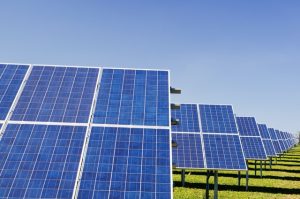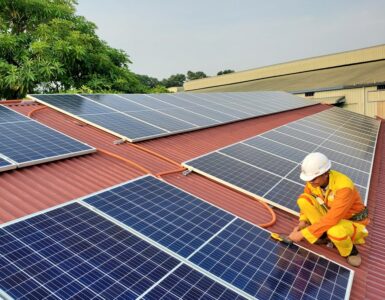As the world’s population continues to grow and resources become scarce, it is crucial that businesses take responsibility for their impact on the environment. One way that businesses can do this is through sustainable procurement, which is the process of purchasing goods and services in a way that supports sustainable development.
Let us explore how businesses can use procurement to promote renewable energy and energy efficiency, and how it can help to create a more sustainable future for all.
Promoting Renewable Energy through Procurement
Renewable energy plays a critical role in promoting sustainability and reducing greenhouse gas emissions. The use of renewable energy sources, such as wind, solar, and hydro, can help to reduce reliance on fossil fuels, which are the primary source of greenhouse gas emissions.
There are several procurement strategies that businesses can use to promote renewable energy:
- Direct sourcing from renewable energy generators: Businesses can purchase renewable energy directly from renewable energy generators, such as wind farms or solar panel installations. This strategy ensures that businesses are supporting the development of renewable energy sources and promoting sustainable practices.
- Purchasing renewable energy credits: Renewable Energy Credits (REC) represent the environmental benefits of renewable energy generation and can be purchased separately from the energy company. By purchasing RECs, businesses can support the development of renewable energy sources and offset their carbon footprint.
- Power purchase agreements: Power purchase agreements (PPA) are contracts between businesses and renewable energy providers that commit the business to purchase a certain amount of renewable energy over a set period of time. This strategy allows businesses to secure a stable and predictable source of renewable energy and support the development of renewable energy sources.
Benefits of Renewable Energy Procurement
Renewable energy procurement can provide several benefits to businesses, including:

- Cost savings: By investing in renewable energy, businesses can reduce their reliance on fossil fuels, which can lead to significant cost savings over time.
- Improved environmental performance: By reducing their carbon footprint, businesses can improve their environmental performance and demonstrate a commitment to sustainability.
- Reputation and branding benefits: By demonstrating a commitment to sustainability, businesses can enhance their brand reputation and appeal to customers who prioritize sustainable practices.
- Stable and predictable energy supply: By entering into PPAs, businesses can secure a stable and predictable source of renewable energy, reducing their exposure to energy price volatility.
Promoting renewable energy through procurement is a critical component of sustainable procurement practices. By adopting procurement strategies that promote renewable energy, businesses can reduce their carbon footprint, demonstrate a commitment to sustainability, and achieve cost savings and reputational benefits.
Energy Efficiency in Procurement
Energy efficiency refers to the use of less energy to perform the same task. Improving energy efficiency can help to reduce energy consumption and associated costs, while also reducing greenhouse gas emissions. Businesses can improve energy efficiency in their procurement practices by selecting energy-efficient products and services and implementing energy-saving measures in their operations.
There are several procurement strategies that businesses can use to promote energy efficiency:
- Selecting energy-efficient products and services: Businesses can prioritize energy-efficient products and services when selecting suppliers. For example, businesses can select suppliers that offer energy-efficient lighting, HVAC systems, and office equipment.
- Implementing energy-saving measures: Businesses can implement energy-saving measures in their operations, such as reducing unnecessary lighting, improving insulation, and using smart energy management systems.
- Conducting energy audits: Businesses can conduct energy audits to identify areas where energy can be saved and prioritize energy-saving initiatives in their procurement practices.
Benefits of Energy Efficiency Procurement
Energy efficiency procurement can provide several benefits to businesses, including:
- Cost savings: By improving energy efficiency, businesses can reduce their energy consumption and associated costs.
- Environmental benefits: By reducing energy consumption, businesses can reduce their greenhouse gas emissions and environmental impact.
- Improved operational efficiency: By implementing energy-saving measures, businesses can improve their operational efficiency and reduce waste.
- Reputation and branding benefits: By demonstrating a commitment to sustainability, businesses can enhance their brand reputation and appeal to customers who prioritize sustainable practices.
Promoting energy efficiency in procurement is an important aspect of sustainable procurement practices. By adopting procurement strategies that promote energy efficiency, businesses can reduce their energy consumption and associated costs, improve their environmental performance, and achieve reputational benefits.
Challenges in sustainable procurement
While sustainable procurement has many benefits, there are also several challenges that businesses may face when trying to implement sustainable procurement practices. Some of the key challenges include:
Cost Considerations: One of the main challenges in sustainable procurement is the perceived cost of sustainable products and services. Sustainable products and services may have a higher upfront cost than non-sustainable alternatives, which can deter businesses from adopting sustainable procurement practices.
Technical Limitations: Another challenge in sustainable procurement is technical limitations. Some sustainable products and services may not meet the technical requirements of a business or may not be compatible with existing infrastructure. For example, a business may require a specific type of energy source for its operations that may not be available in a renewable form. In such cases, businesses may need to invest in new infrastructure or technology to adopt sustainable procurement practices.
Availability Issues: Availability issues can also present a challenge in sustainable procurement. Some sustainable products and services may not be readily available or maybe in limited supply, particularly in certain regions or industries. This can make it difficult for businesses to adopt sustainable procurement practices, as they may not be able to find suppliers that meet their sustainability criteria.
To address these challenges, businesses can take several steps:
- Conduct a cost-benefit analysis: By conducting a cost-benefit analysis, businesses can evaluate the long-term financial and environmental benefits of sustainable procurement practices and make informed decisions about procurement.
- Engage with suppliers: Businesses can engage with suppliers to encourage the development and availability of sustainable products and services.
- Collaborate with industry peers: Businesses can collaborate with industry peers to share best practices and encourage sustainable procurement practices across the industry.
- Invest in research and development: Businesses can invest in research and development to identify innovative solutions that meet their sustainability criteria.
Wrapping Up
Procurement plays a critical role in creating a sustainable future. By adopting sustainable procurement practices that promote renewable energy and energy efficiency, businesses can reduce their environmental impact, improve their operational efficiency, and achieve reputational benefits. Despite the challenges, businesses can take proactive steps to overcome them and adopt sustainable procurement practices that align with their values and priorities. As such, it is important for businesses to adopt sustainable procurement practices and take action to create a more sustainable future for all.
Contributed by: Marijn Overvest, founder of Procurement Tactics, a company that offers procurement solutions to businesses. With over 20 years of experience in procurement and negotiations, Marijn has handled deals up to 500 million euros and worked with 70 suppliers delivering 1500 products annually.





Add comment